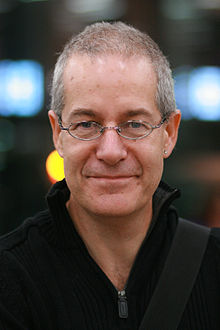Find our Sentientist Conversation on the Sentientism YouTube here or on the Sentientism podcast here.
Massimo (philosophyasawayoflife.blog & @mpigliucci) is Professor of Philosophy at the City College of New York. He co-hosted the Rationally Speaking Podcast & was the editor in chief for the magazine Scientia Salon. He is an outspoken critic of pseudoscience & creationism & an advocate for secularism, science education & Stoicism.
In Sentientist Conversations we talk about the two most important questions: “what’s real?” & “what matters?”
Sentientism is “evidence, reason & compassion for all sentient beings.” As well as the video above, the audio is on our Podcast here on Apple and here on the other platforms.
We discuss:
0:00 Welcome
1:10 Massimo’s Intro: Evo bio to philosophy
1:40 What’s Real?
- Growing up in Rome, “Catholic by default”
- Accepting the christian world view, but questioning it early. The Trinity, transubstantiation
- At communion: “It doesn’t taste like human flesh”
- Adopting secular humanism & turning to science & philosophy
- The limitations of secular humanism: “When it came to real crises in my life… secular humanism was not very useful… it doesn’t help me to think in terms of human rights when my father is dying”
- Stoicism as a practical philosophy of ethics & how to live a meaningful life
- Hume & Russell
- Some of the commandments “seem a little narcissistic & self-centred coming from a god”
- Jesus seems like a good guy but the Catholic church has taken some awful political positions over the centuries & today
- Not blaming Jesus but instead blaming patriarchal forces inside & outside religion
- Antivaxx, conspiracy theories, alternative medicine
- “I don’t believe that any unfounded belief is harmless, ultimately”
- The attitude of taking unfounded beliefs seriously crosses boundaries easily. Jumping from one mystical or conspiracy theory to another
- Hume “A reasonable person proportions his belief to the evidence”
- Faith as belief without evidence
- The ony thing you don’t want to do without belief is go to 0% or 100%. Bayesianism
- Carl Sagan’s It’s nice to have an open mind, but not so open your brain falls out
- Don’t ask “is it possible?” ask “how likely is it to be true?”
- The risk of dogmatic attitudes even amongst skeptics
- People don’t like being told they’re idiots
- Even a religious/supernatural worldview with modern ethics still presents a risk
- When religious authority conflicts with compassionate ethics
- As a secular humanist can disagree with Sagan or Seneca. As a Christian person I can’t disagree with god or Jesus
21:21 What & Who Matters?
- The Tolstoy fallacy “Unless there is a god you might as well go around murdering and raping”
- Naturalistic ethics (Philippa Foot, Confucianism, virtue ethics and more…)
- Psychopaths are defective because co-operation is natural
- Reason might be the slave of passions but it shouldn’t be
- We’re naturally pro-social (in-group) but also naturally xenophobic (out-group)
- Nature provides us with the beginning of virtue, but reason expands it
- Stoics initially stopped with humans. Modern stoics tend to go beyond humanity to other sentients
- Bentham asked the right question: “Can they suffer?”
- Ethics is a human invention
- Kant’s Categorical Imperative. His single commandment. Moral realism
- Foot’s “if-then” Conditional Imperatives
- Choosing not to care about others is the choice to be immoral
- Rudimental morality in non-human animals
- Humanism’s focus on our species
- The neglect of moral scope in moral philosophy
- Moral theory without practice is pretty sterile
- One thing humanists get right is the centrality of human agency & capability
- Rejecting biocentrism & ecocentrism
- Personhood implies rights & duties so isn’t appropriate for non-humans
- Every sentient being should be a moral object/patient
- Would justice be better without the concepts of moral agency & free will?
- Stoics were free will compatibilists “Blaming is useless”. Epictetus
- The Dalai Lama’s thoughts on, without rage, killing Hitler as a baby
- Compassion isn’t appeasement or quietism
- Planets don’t suffer, but this one is home to many sentients. That’s why it matters
- Aesthetics & beauty
49:37 The Future
- People don’t pray to start their cars
- Many people are naturalistic in practice but not in concept, while being sentiocentric in concept but not in practice
- Optimistic about the v.long term, if we can get there
- Humanity has, broadly, made moral progress
- People who see clearly what should be done are often ignored or put to death (Socrates). Climate change!
- Ignoring win-wins.
Sentientism is “Evidence, reason & compassion for all sentient beings.” More at Sentientism.info.
Join our “I’m a Sentientist” wall using this simple form.
Everyone, Sentientist or not, is welcome in our groups. The biggest so far is here on Facebook.
Thanks Graham for the post-production.

